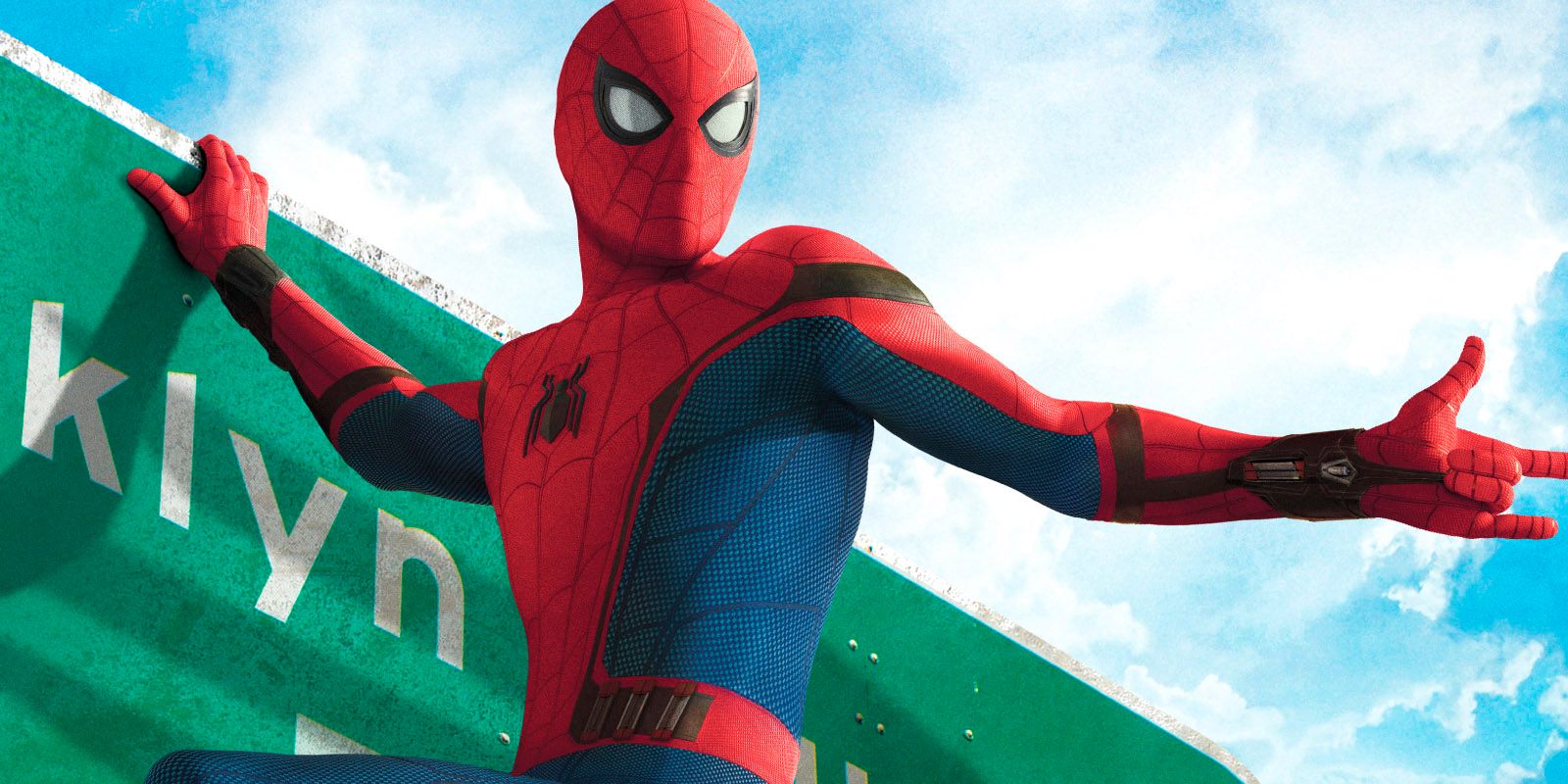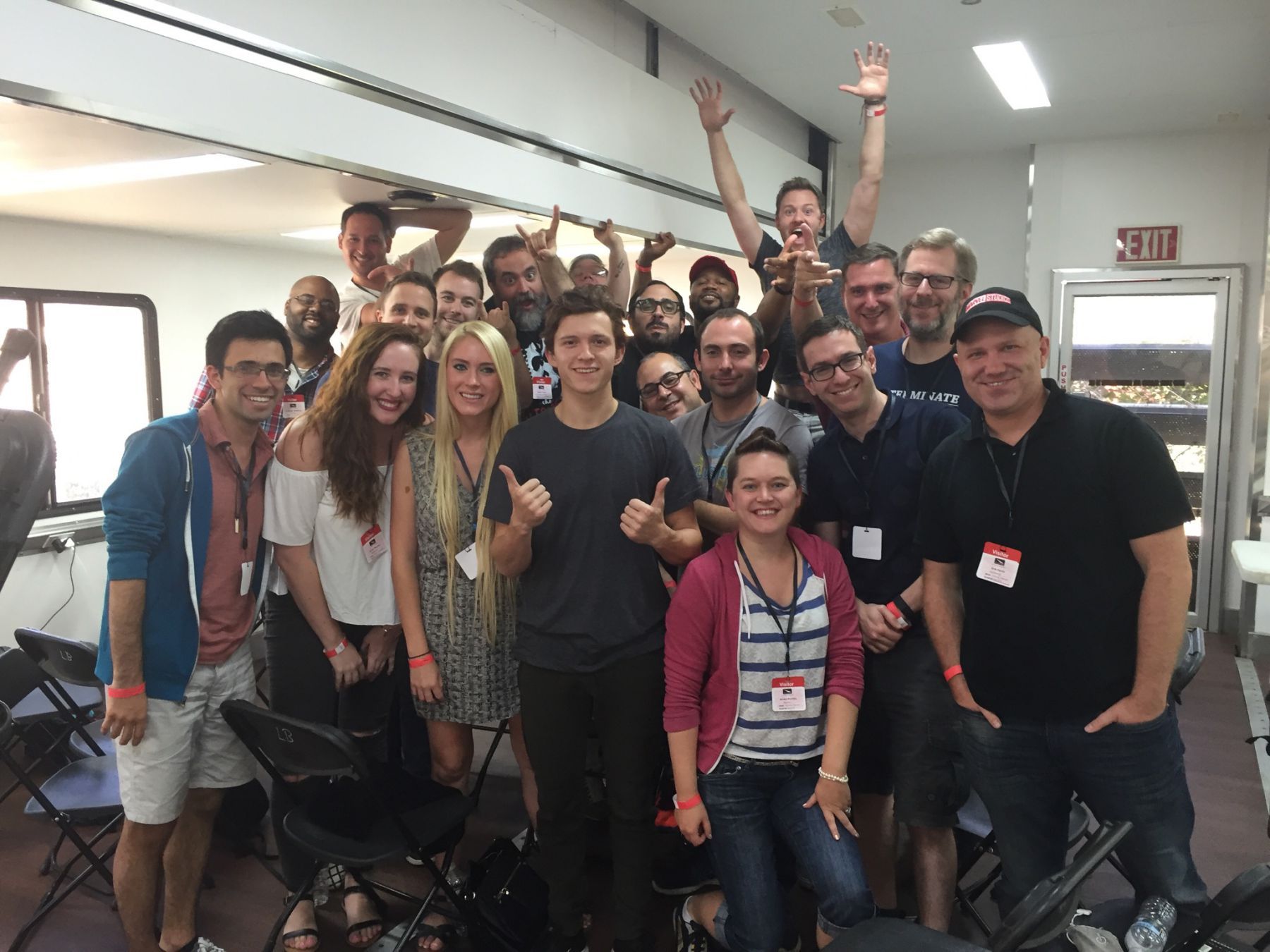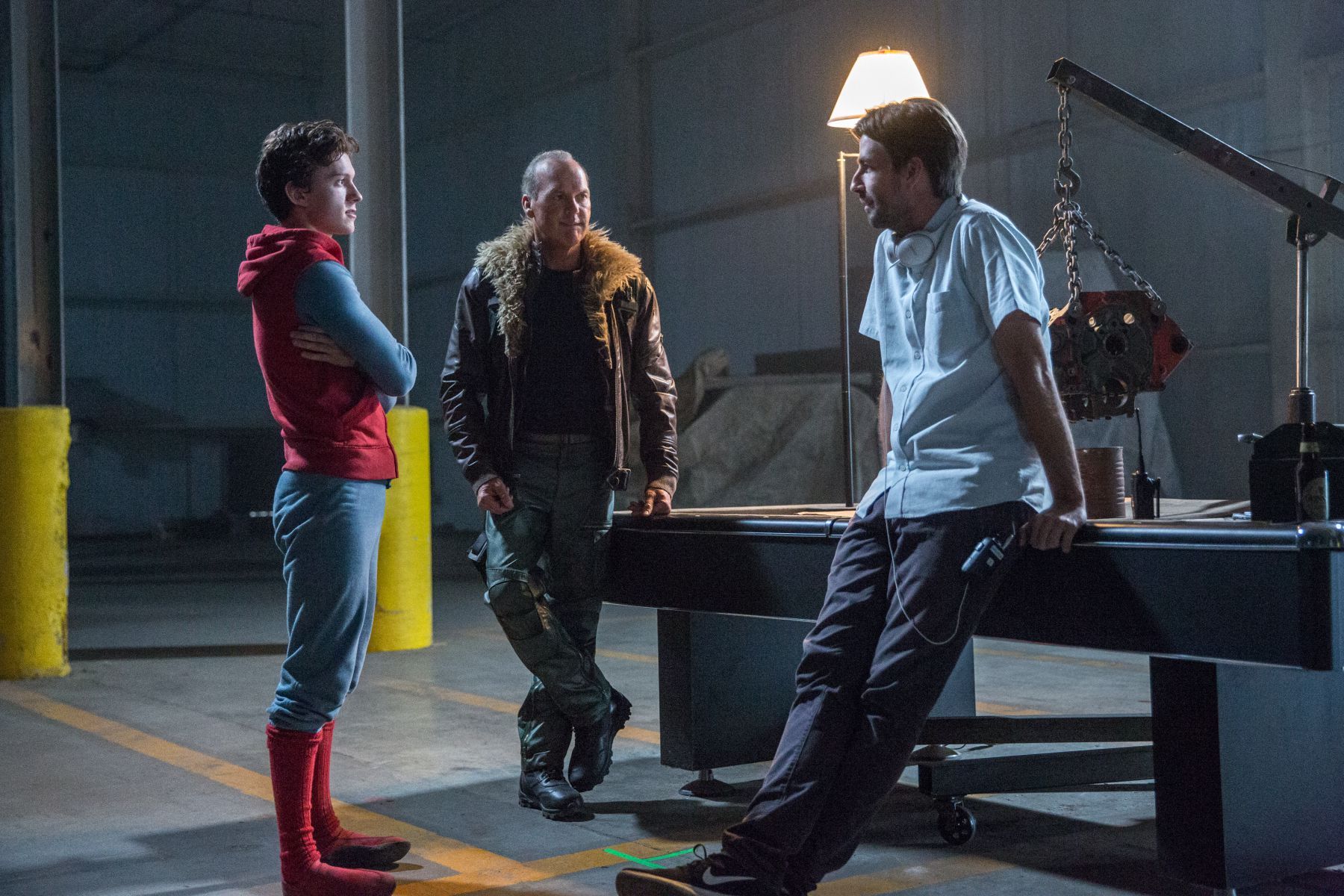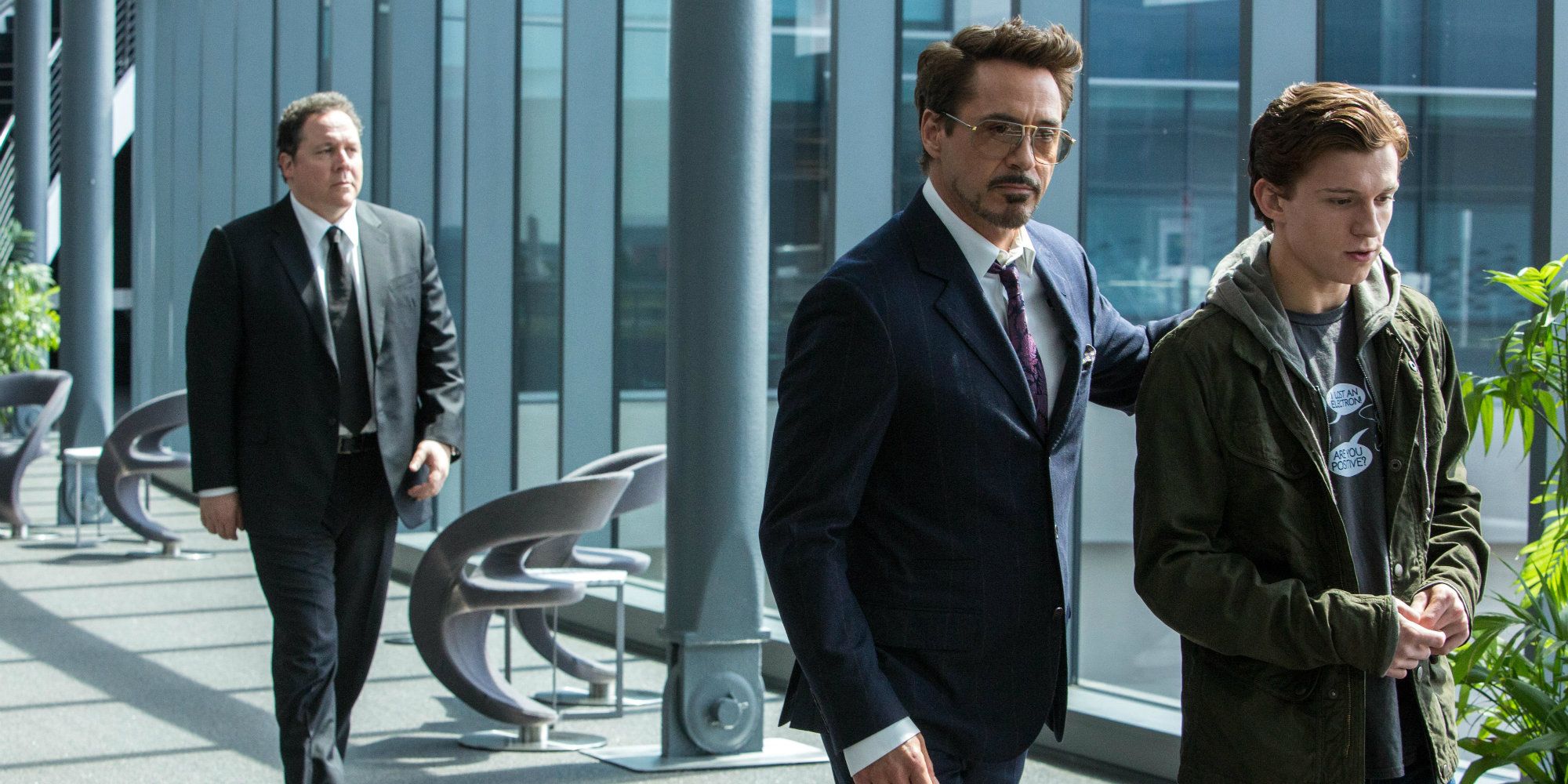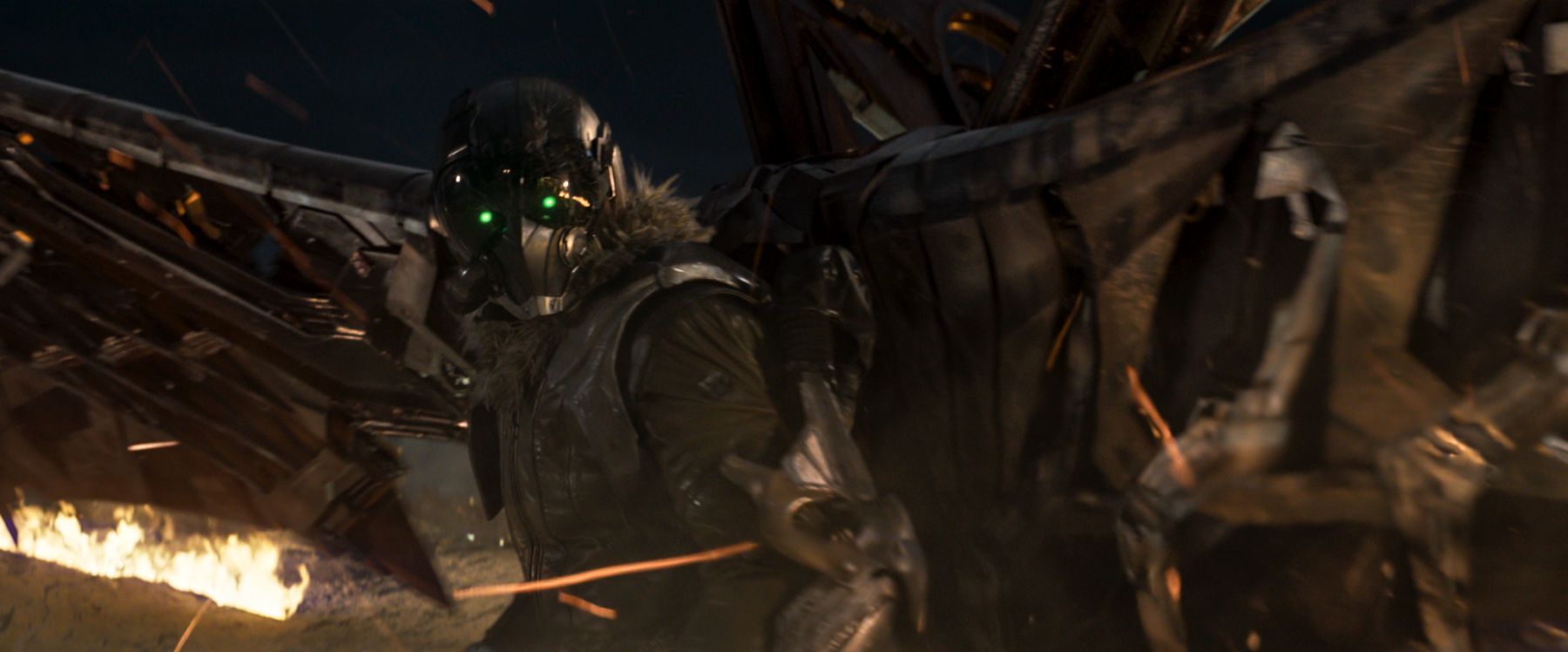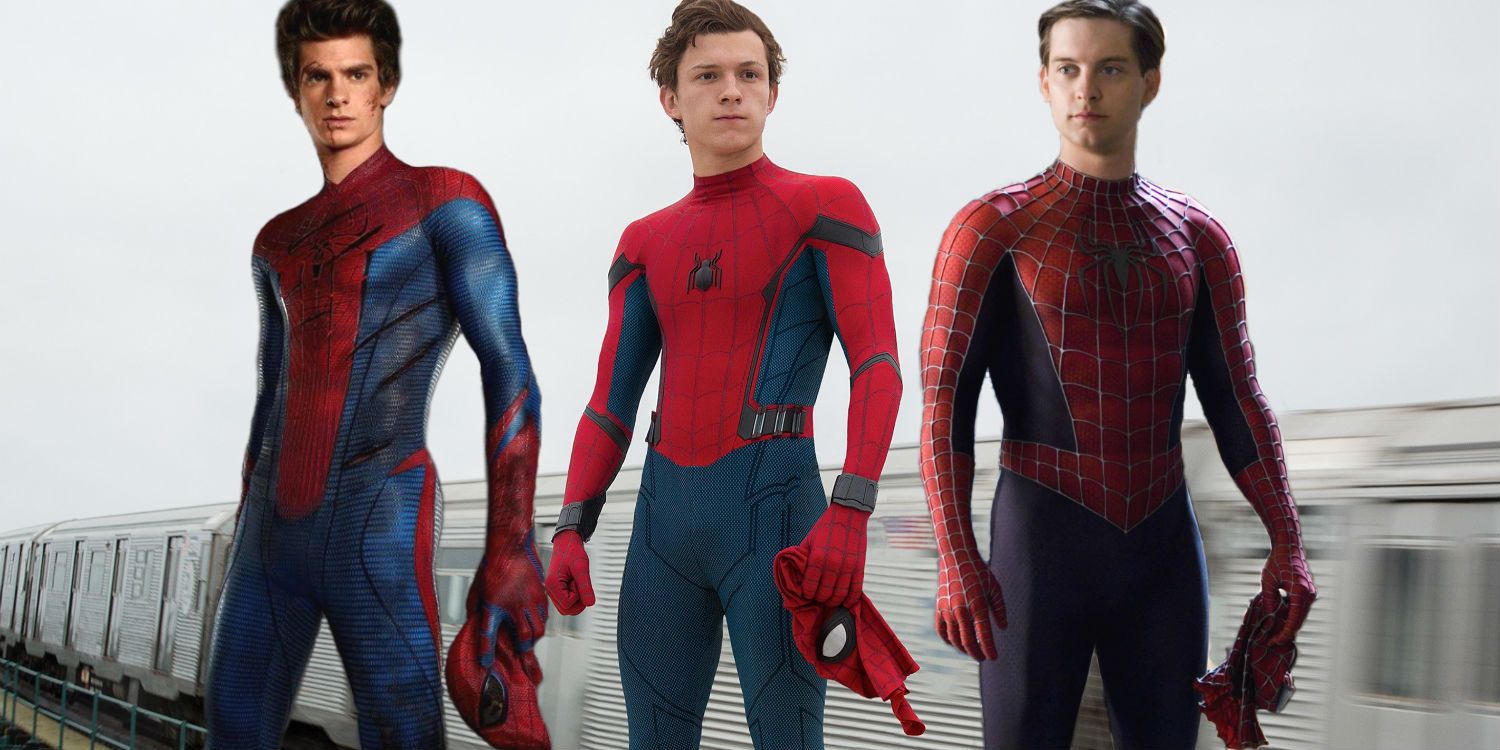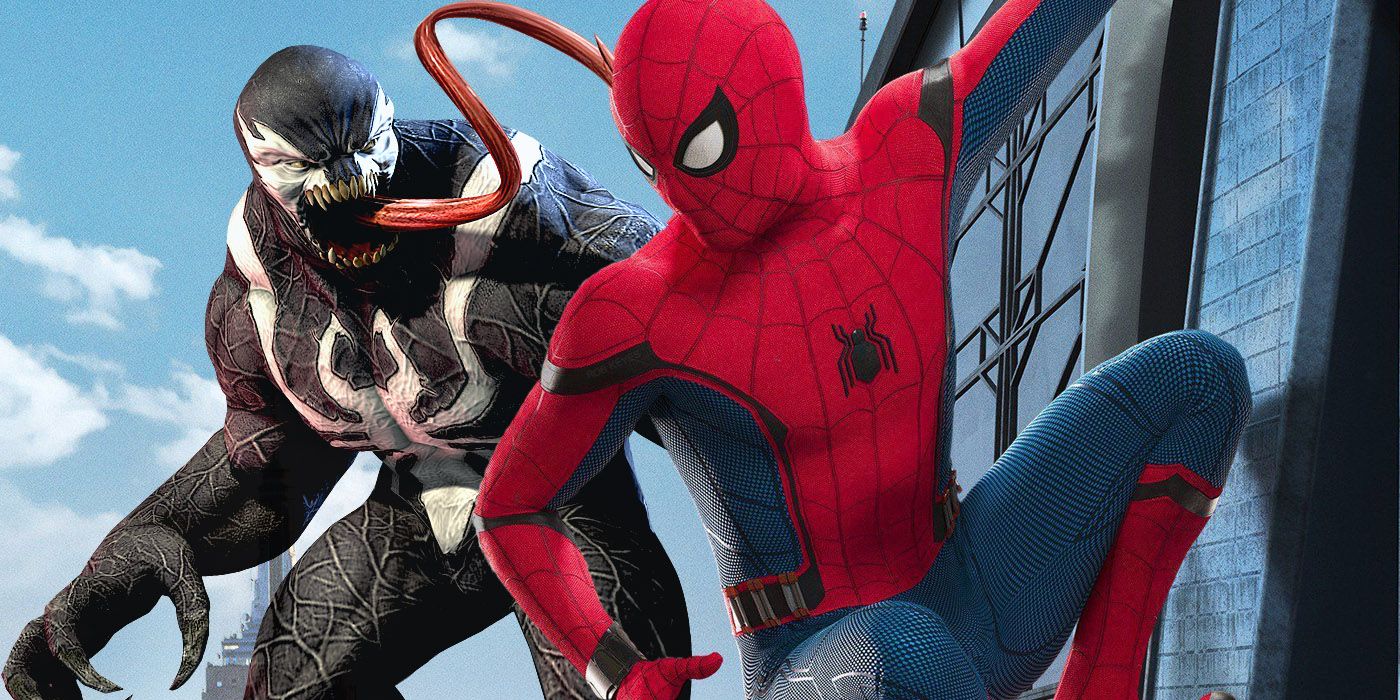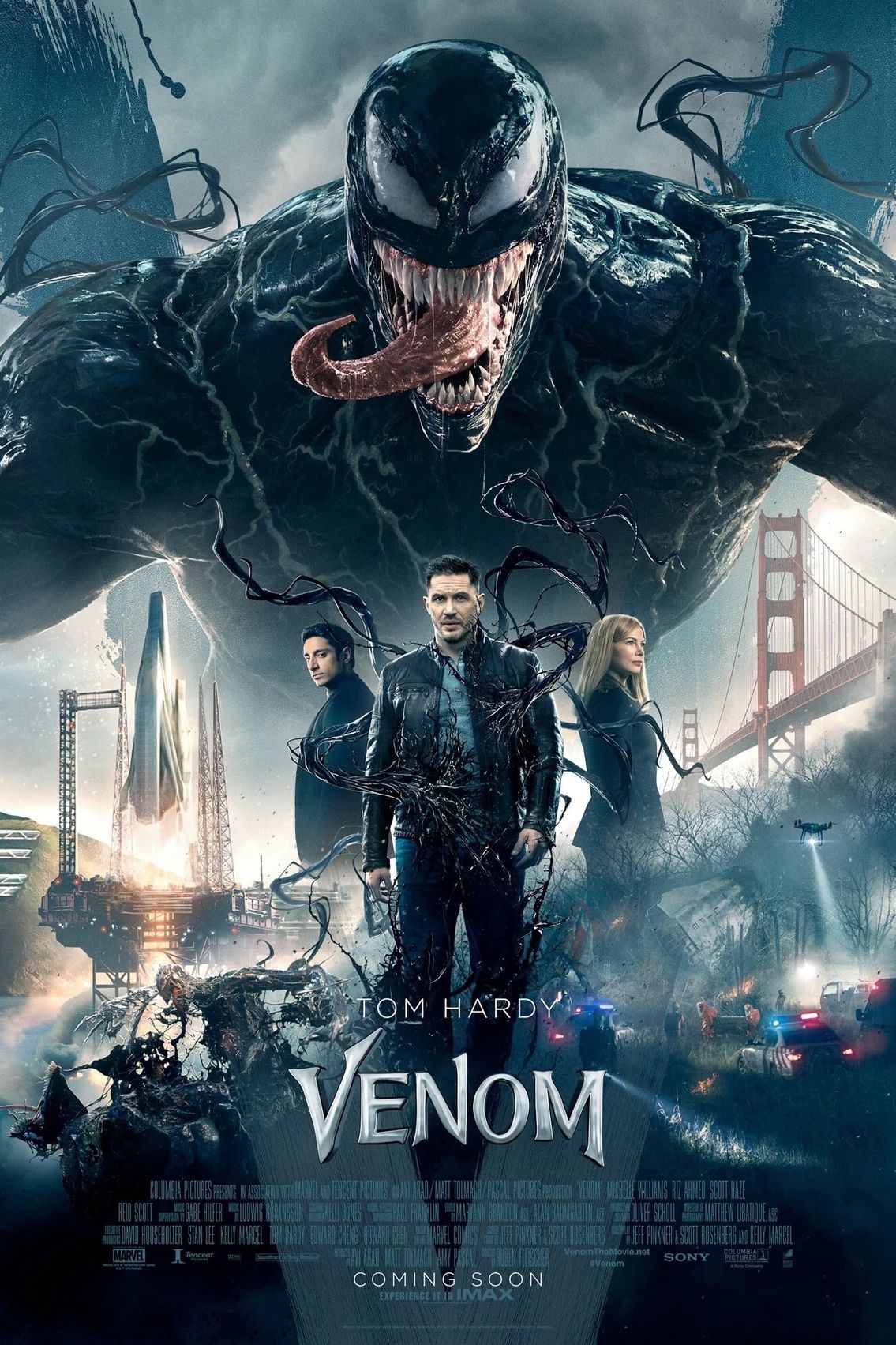Normally when visiting the set of a Marvel Studios production, the day begins with an introduction and Q&A with Marvel Studios boss and producer Kevin Feige. In the case of Spider-Man: Homecoming, a production we visited in Atlanta in August 2016, things were different. It's been well-documented and well-publicized how Sony Pictures and Disney-owned Marvel Entertainment came into a unique partnership with the goal of rebooting Spidey within the Marvel Cinematic Universe. The heads of this are Feige on the Marvel side and ex-Sony Pictures boss Amy Pascal on the other, who now serves as a producer.
This meant everything was a tad unusual for this set visit. Marvel is making the movie but Sony is distributing and marketing it. And it works for one simple reason: everyone involved loves Spider-Man and wants to make him the best he can be, a point emphasized by Pascal when we interviewed her on set.
Our conversation with Amy Pascal covers the unique and unprecedented partnership between Disney, Sony and Marvel Studios; the unclear future of the partnership; how Jon Watts, Michael Keaton and Tom Holland were chosen; how the plan is to avoid recycling villains from previous Spider-Man franchises; getting Queens, New York right and diverse; and comparing Peter Parker actors.
I kind of want to start at beginning with how Marvel and Sony came together to bring Spidey back to the MCU.
Amy Pascal: We made five Spider-Man movies. And we needed to do something different. And we tried doing a lot of different things as you all know and documented. But the thing that we hadn't done was put him in the Marvel universe, and put him in a world where there are other superheroes. Because he was always the only superhero. And there's only so many times that you can tell the story of, "I really want everyone to love me and if I tell them I'm Spider-Man, they'll love me...but I can't tell them!" So, we've told that story as many ways as I could figure out. And Kevin [Feige] and I had been working together since the very first movie, because he used to get coffee for Avi [Arad], if you can believe it. He was very good at getting coffee, though.
[Laughs]
He's an even better producer, but he's also good at coffee. So it felt like we needed to do something else and this felt like the right thing to do. And Kevin and I had been talking for a very long time about that. And here's the thing that I wanted, I emphasize for all of you, because I think this is really important and I don't think it will ever happen again in the history of the movie business: you have three studios that came together to have this movie being made. And no studio likes to share anything with anyone, let alone three studios. And truthfully - there is nothing cynical I can find in this statement - everybody did it because they wanted Spider-Man to be great. Truly, it was because Spider-Man is great, the character is great and people love him. That's good for Disney. That's good for Marvel. And that is certainly good for Sony. So, the fact that all these companies were willing to work together to make that happen, to make - you know - believing that everybody needed each other in order to have that happen. I think that's pretty miraculous.
What was it about Jon Watts that made him the right choice for you?
Amy Pascal: Well I loved Cop Car, and so did Kevin. We both did. And one of the things I loved about Cop Car was that with very little money, he was able to tell a story through action. And there's a lot of directors who are very, you know-- successful action directors-- that don't always tell the story through action? And action having a beginning, middle and end? And that you don't have like, a movie, and then an action scene, and then a movie, and then an action scene...and what we saw in Jon was somebody who actually knew the whole thing. Plus the performances that he got from those little boys I thought was really something. Plus, he like, scared you and he made you feel hopeful and he surprised you when that lady gets shot and he did all the things with, like eight-thousand dollars that people can't do with eighty.
How important was it to get Tom Holland into Captain America: Civil War to introduce the character?
Amy Pascal: That was always the idea, from the very start. From the very start, it was always about putting him in Civil War. And it was always about the suit...that's what the movie is always about.
How did casting Tom for this movie, with Marvel and Sony, differ from the previous times you were casting this character?
Amy Pascal: Well there's more people. It was... it wasn't dissimilar because you're looking at a bunch of boys who are really hopeful and wanted desperately to be chosen, and you're whittling them down and whittling them down and feeling bad about it, trying to find some quality that you haven't seen before. We just did it together. It's been a miraculously smooth partnership between the studios.
Can you talk about the choice for this film, surrounding Peter with this big supporting cast, as opposed to the other movies where it's usually just him and one other character?
Amy Pascal: Well that was one of the points of putting him in the Marvel universe. He lives in a world where - you know, New York City - where you have the Avengers and the shiny tower and all the Gods - and he lives in Queens. You know? And he sort of lives off the scraps of what they're doing in Manhattan. And so the idea was to populate the movie with enough of both, but, also just about getting really good actors. You know? And out director came in and said, "I want the world to look like high school. I don't want it to look like a Hollywood high school movie. Because, we've all seen those. I want it to look like what a high school would look like today. With a lot of nerdy kids. Because it's a school for smart kids. You know, with their paints all up here. That really looks good." But, he wanted it to reflect the world that we live in, and I think that was something -- and you know, he's like, younger than we are - well, maybe not like Kevin, he's like four. To me. And he said things like "cliques are not the same as they used to be", "you can't have the rich kid clique and this clique"-- kids hang out in gangs. He brought a whole other modern sensibility to it that I think is really fresh.
One of the things I noticed from the Comic-Con clip was that Michelle's relationship with Peter was really, really interesting. She was sort of like, picking with him-- and then in high school, when you like someone, you sort of give them a hard time. Can you tell me about Michelle's relationship with him?
Amy Pascal: Well, Peter has lots of girls around him in this movie, and in this movie, the story is about him and Liz. But Michelle and Ned are like his two friends who are similar and come from similar backgrounds. But obviously Zendaya is something great. When we - actually, can I tell you something really embarrassing? When Kevin and I looked at her screen test... oh god, maybe I can't say this... we didn't know who she was! There was this girl, she was the most gorgeous thing I've ever seen and we were like looking at it and she was so fine and so smart and savvy and poised and she had no make-up on...and we just looked at it after we shot it and we were like, "She's really fine." And they were like, "She's really famous." But she's been blowing us away every day.
Did Michael Keaton take any convincing to come back to comic book kind of stuff? I know talks broke down at one point.
Amy Pascal: Are you kidding? Are you joking? He was the person that we wanted from the time that we knew we were doing this character and he took from the time he decided it to the time we closed the deal, yes.
You have such a deep rogue's gallery of villains--
Amy Pascal: Sometimes too many.
[Laughs]
Amy Pascal: All at once!!
[Laughs] What's your opinion about recycling those villains, bringing somebody back?
Amy Pascal: Well, here's the thing: we've recycled a lot. Um, I think there are certain characters I don't think there's anything more to say about them right this minute? And also, you're not doing a story on this, but we're also doing this animated movie, and that has a lot of characters in it, too. Very different, because it's animated. But I think we have to try to be really fresh with it. I mean, I don't know how many more times we can do - at least for now - I don't know how many more times we can do the Green Goblin. I've certainly tried to do it fifty.
One of the things that stands out about the movie is that it's a different villain, there's no Daily Bugle, Peter's younger - everything is totally different from all five of those movies. Is that something you also all decided from the beginning?
Amy Pascal: From the very beginning. From the very beginning the idea was to cast somebody who was a kid who had that kid sensibility who you felt had the weight of the world on him and only a kid could feel like a kid. You know? No matter what. And that's what we wanted. We wanted to get that feeling this time. And we did from the very beginning want it to take place in high school. I mean, the other movies take place in high school, too, but not in the same way that we're doing it in this movie.
I grew up in Queens, and this is the first Spider-Man movie where the faces in the hallway look like the faces in the hallway I grew up with. How important was it for you to break up that white mass of faces in the previous five films?
Amy Pascal: I don't want to sound like we were trying to be politically correct, because that would be a drag, but...it was really important. Because it's the world that we live in. And we don't live in that other world anymore. And we needed to catch up with the way the world really is and people who go to the movies and people want to see themselves and...it was too long. Too long. But, we did.
Besides the fact that he is younger, can you compare this Spider-Man and Tom's performance to the others?
Amy Pascal: Well I love all my Spider-Men. And they all have different qualities that I think are really special. The thing that they all are is that they're all fucking awesome actors. And each - whether it was Tobey [Maguire], or Andrew [Garfield] or Tom - they can act like crazy. And I think that's been a really important thing. I think youth was really important? We tried to find somebody who wasn't English, but, there you are... we wanted somebody who looked like Peter Parker? And somebody who we'd have empathy for. And who was trying really hard.
One of the things that us nerds really care about is what happens with Spider-Man over time. What is the larger plan? Are there agreements? How many appearances can Spider-Man make over Marvel movies?
Amy Pascal: I think I'll answer it this way: I think we found the right formula and I think everybody is going to want the right thing to continue. And I think that there's a - as I said - there's a surprisingly generous and cooperative thing and if it works for everybody, then it's going to work for everybody. The thing is - and I always felt this way - if you worry about the movie and you worry about the story, all the politics take care of themselves. They just do. Because when the movies work, there's enough for more than everybody. It's when you start making the other stuff first that you start to get yourself in trouble.
Can you think of any specific ways that the development of this film with Marvel was different from doing it independently at Sony?
Amy Pascal: Oh my God, they have a whole process that's so fantastic. I mean... I'm a total Marvel groupie now. They are meticulous, they are relentless and one of the great things-- I say this all the time-- is you're in a meeting with them, and they go, "Okay, it's good-- but how do we make it better?" I've never heard that before! They're like, "How do you cut it?" That was like our line. So, this is like, "...okay. It's really good. How do we make it better than this? How do we go tot he next place? How do we bless it?" That's their favorite word at Marvel. "Are we blessing a scene?"
Was there a moment when you realized that the magic of the three studios was actually magic and not a disaster?
Amy Pascal: I think when we saw Tom and it was unanimous from everybody that he had it, and everything fell into place. There was a - believe me, what we put the poor boy through - Hell. And a lot of other boys, too, who were also good. But once you saw that thing on film, just... everybody knew it. And you know, that's the magic. And the script's really good, and the dailies are really good, so so far everyone's happy.
You mentioned the animated Spider-Man films. Does anything in those films preclude inclusion in--
Amy Pascal: Nothing precludes anything. The sky is open right now. And I think that, you know, if we can keep this goodwill going, I think it's going to be good for the fans and good for the journalists and the nerds and good for the companies.
There's been a Venom movie in development?
Amy Pascal: There's a Venom movie in development.
Related: Spider-Man: Tom Holland Wants to Beat Up Venom
You talked about the importance of working with Marvel - what's the decision not to work with Marvel on the animated thing?
Amy Pascal: They just weren't part of it. It was something we were doing with Chris and Phil Miller and it's a very different kind of take on it? It's another realm.
More: Tom Holland Talks Spider-Man Costumes, Sequels, and Villains
A young Peter Parker/Spider-Man (Tom Holland), who made his sensational debut in Captain America: Civil War, begins to navigate his newfound identity as the web-slinging super hero in Spider-Man: Homecoming. Thrilled by his experience with the Avengers, Peter returns home, where he lives with his Aunt May (Marisa Tomei), under the watchful eye of his new mentor Tony Stark (Robert Downey Jr.). Peter tries to fall back into his normal daily routine - distracted by thoughts of proving himself to be more than just your friendly neighborhood Spider-Man - but when the Vulture (Michael Keaton) emerges as a new villain, everything that Peter holds most important will be threatened. Directed by Jon Watts. Produced by Kevin Feige and Amy Pascal. Screenplay by Jonathan Goldstein & John Francis Daley and Jon Watts & Christopher Ford and Chris McKenna & Erik Sommers, Based on the Marvel Comic Book by Stan Lee and Steve Ditko.

